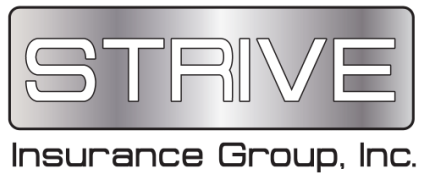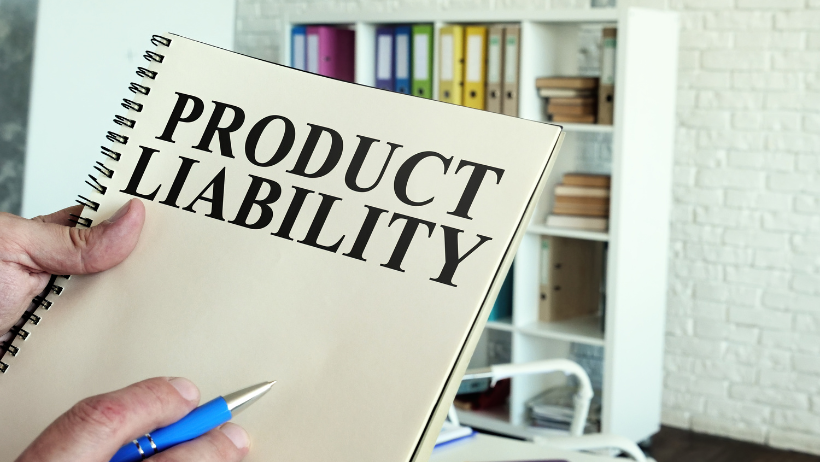|
As a biotech firm, you're at the forefront of innovation, developing cutting-edge products and technologies that transform lives. However, this pioneering work comes with unique risks. To safeguard your business, intellectual property, and employees, you need tailored insurance coverage. In this blog, we'll explore three essential insurance coverages biotech firms can't do without:
1. Product Liability Insurance Biotech firms develop and manufacture complex products, such as pharmaceuticals, medical devices, and biologics. Product Liability insurance protects your business in case these products cause harm or injury to patients, users, or consumers. This coverage is crucial, as even a single product recall or lawsuit can be financially devastating. 2. Intellectual Property Insurance Biotech firms invest heavily in research and development, generating valuable intellectual property (IP) such as patents, trademarks, and trade secrets. Intellectual Property insurance safeguards your business against IP infringement, theft, or misuse. This coverage helps you defend your IP rights, recoup lost revenue, and even pursue legal action against infringers. 3. Directors and Officers (D&O) Liability Insurance Biotech firms are led by boards of directors and officers who make strategic decisions that impact the company's success. Directors and Officers (D&O) Liability insurance protects these individuals from personal liability in case of lawsuits, regulatory actions, or other claims. This coverage is vital, as D&O claims can arise from allegations of wrongful acts, breach of duty, or negligence. Biotech firms face unique risks and challenges, but with the right insurance coverage, you can mitigate these risks and focus on driving innovation and growth. Don't leave your business exposed – consider investing in Product Liability, Intellectual Property, and D&O Liability insurance to safeguard your company's future. Protect your biotech firm today! In the innovative world of biotechnology, firms are at the forefront of scientific breakthroughs, from pharmaceuticals to genetic research. However, with great innovation comes great risk, particularly in terms of liability. Professional liability coverage, also known as errors and omissions (E&O) insurance, is crucial for biotech firms. Here’s why:
1. Protection Against Legal Action Biotech firms are involved in complex and often groundbreaking research and development. The outcomes can sometimes lead to unexpected side effects or failures that might result in harm or financial loss to a client or third party. Such scenarios can lead to costly lawsuits. Professional liability insurance helps cover the legal fees and settlements, which can be exorbitant, especially in high-stakes fields like biotechnology. 2. Maintaining Credibility and Trust For a biotech firm, maintaining credibility is crucial. A single lawsuit can tarnish a company's reputation, affecting its ability to secure funding or partnerships. Professional liability insurance not only covers financial losses but also helps in managing public relations crises, allowing a company to handle legal battles discreetly and efficiently. 3. Compliance with Industry Standards In many parts of the world, regulatory bodies require biotech firms to have professional liability insurance as part of their licensing criteria. This is not just a bureaucratic tick-box but a safeguard that ensures the firm can cover damages if something goes wrong, thus protecting consumers and business partners. 4. Encourages Risk Taking and Innovation Knowing that there is a safety net in place, biotech firms can pursue innovative research and development with less fear of financial ruin from potential legal issues. This encouragement of risk-taking is essential in a field that relies on constant innovation to push the boundaries of science. 5. Financial Stability Litigation can be incredibly costly. Without appropriate insurance, a biotech firm might face financial instability or even bankruptcy in the event of a significant claim. Professional liability insurance provides a buffer that can help ensure the company survives financially after facing a claim. 6. Attracting Investment Investors are more likely to invest in companies that have managed their risks well. Professional liability insurance is often seen by investors as a sign of prudent management and operational maturity, making the firm a more attractive investment opportunity. 7. Global Market Accessibility Biotech firms often work in multiple countries, each with its own legal and regulatory requirements. Professional liability insurance can be tailored to meet these diverse requirements, facilitating smoother international operations and expansion. The biotech sector's inherent risks demand robust risk management strategies, with professional liability coverage being a cornerstone. Such coverage not only protects against potentially devastating financial and reputational damage but also supports the firm’s operational and strategic objectives. In the volatile yet exciting world of biotech, professional liability insurance isn’t just an option—it’s an essential part of ensuring a firm’s longevity and success. Understanding Risks and Insurance Solutions
In today's complex business landscape, product liability looms as a daunting challenge for manufacturers, distributors, and retailers. Understanding the intricacies of product liability is not just a legal imperative but a crucial aspect of maintaining a sustainable business. This blog delves into the world of product liability, exploring its risks and the insurance solutions available to mitigate these challenges. Understanding Product Liability Product Liability Defined: Product liability refers to the legal obligation of businesses to ensure that their products are free from defects that could harm consumers. This responsibility can arise from manufacturing defects, design flaws, or inadequate warnings and instructions. Types of Product Liabilities Manufacturing Defects: These occur when a product departs from its intended design due to some error in the manufacturing process. Design Defects: Inherent flaws in a product's design that make it unsafe. Inadequate Warnings: Failure to provide clear instructions or warnings about the product's use. Real-Life Examples: The blog can include notable cases like the automobile recalls due to safety issues or lawsuits faced by pharmaceutical companies for undisclosed side effects. Risks Associated with Product Liability Financial Risks: Product liability can lead to substantial financial losses through legal settlements, compensation payouts, and recall costs. Reputational Damage: A product liability issue can irreparably damage a company's reputation, leading to lost customer trust and reduced market share. Operational Disruptions: Product recalls or legal proceedings can disrupt normal business operations, leading to significant losses. Global Considerations: Different countries have different product liability laws, posing additional challenges for international businesses. Insurance Solutions for Product Liability Types of Insurance Coverages:
Best Practices for Risk Management Quality Control: Implementing rigorous quality control measures is the first line of defense against product liability. Legal Compliance: Staying abreast of and complying with product safety regulations is crucial. Consumer Education: Clear labeling and instructions can significantly reduce liability risks. Proactive Recall Strategies: Having an effective recall strategy can mitigate risks and protect the company's reputation in case of a product defect. Understanding and managing product liability risks are critical for the longevity and success of any business involved in manufacturing or selling products. Assessing current risk management strategies and ensuring adequate insurance coverage are essential steps in this process. Additional Resources
What is liability insurance? It is the type of insurance that provides coverage for the purchaser if he or she is sued for losses or damages to another person. However, note that payment is NOT made to the insured person but to a third party that suffers loss or injury based on the insured person’s action or inaction. Furthermore, liability insurance does NOT cover contractual negligence on the part of the insured. In other words, if you do NOT meet your contractual obligations, you cannot expect your insurer to come to your aid. Lastly, an insured is NOT covered by this policy if it is proven that damages were caused deliberately. Type Of Liability Insurance Policies 1. Business Liability Every business runs the risk of causing losses or damages to a third party. This coverage protects your business from liability claims resulting from your premises and operations, your products and services, personal or advertising injury (libel suits are covered here), medical expenses or fire damage. 2. Employer Practices Liability If your business has employees then there is the need to have this type of liability coverage to protect your business. This policy covers your business for various claims by employees (past and current). It includes claims of wrongful termination, sexual harassment, discrimination, negligent evaluation, failure to employ or promote, breach of employment contract, wrongful discipline, mismanagement of employee benefit plans, deprivation of career opportunity and infliction of emotional distress. 3. Professional Liability This is also known as E&O (Errors and Omissions) insurance. If you are a professional who may be sued for negligence, errors or omissions in the discharge of your professional duties, then you need this policy type. This will cover you if your advice leads to financial loss to your client, a client is dissatisfied with your service and decides to sue for damages and other related issues. 4. Umbrella/Excess Liability This type of policy increases the amount of liability coverage for a policy holder. It is also called personal excess coverage. People buy it to ensure that lawyers do NOT go after their personal assets when the liability coverage amounts in their home and/or auto insurance policy is inadequate for compensation in a liability suit. There are other liability insurance policy types like general liability and cyber liability. Your auto insurance policy normally comes with liability components in the form of bodily injury liability, which takes care of people injured in an accident, and property damage liability, which pays for damages to someone else’s property by your vehicle. 5. Products Liability Insurance Products Liability Insurance is a type of insurance that provides protection for businesses when their products cause property damage, bodily injury, or death to customers. It helps cover the costs associated with defending and settling claims against your business due to any losses incurred because of a product you have made, sold, or distributed. This includes damages related to design defects in manufactured goods; improper labeling or packaging; inadequate warnings; and breach of warranty. Without this coverage, businesses would be completely exposed in such cases and face devastating financial losses and significant legal fees So Why Do You Need Liability Insurance? The answer is simple: We live in a litigious world. People are very quick to claim damages for any action or inaction that they believe impacts them negatively. You are liable if a dead branch falls off your tree and hits a guest on your property. You are liable if someone is bitten by your dog. The list goes on and on. And what happens if the liability amount of your regular policy is inadequate? Any smart lawyer can easily go after your assets in order to get full compensation for his or her client. This means that you need to get the right liability coverage (an umbrella insurance policy) if you have substantial assets and want to keep them safe. It is on record that 60% of employers are sued each year by their former employees. Add the fact that communities can easily sue a company for a product, service or activity that has “affected” their lives negatively. Liability insurance is a necessary part of any insurance policy. Product Liability Insurance is a type of insurance that business owners frequently ignore. When reviewing your policy, business owners frequently rapidly gloss over it. This is likely due to the fact that the Product and Completed Operations coverage is frequently included by default in the General Liability part of an insurance policy. Although sometimes it is EXCLUDED on the policy, so make sure you understand your policy.
For whom is product liability insurance necessary? Most, if not all, businesses need product liability coverage. Product liability cases frequently have the potential to be among the worst losses for small companies. This is another reason why small firms should always invest in Business Insurance as soon as they launch their operations. Our insurance agency's reputation for representing the best insurance companies, providing excellent customer service and competitive pricing to our clients has been earned and proven for over 30 years. We take great pride in finding you the best coverage and backing it up with prompt personal service. 12/14/2022 We Understand Life Sciences RiskBiotechnology is designed to push the boundaries of innovation and creativity. Your work aims to provide solutions to various local and global problems, including overpopulation, food insecurity, disease, climate change, and more. As such, your work is inherently risky and occasionally controversial. Any biotechnology company's risk-management strategy must include biotechnology company insurance. Below, we discuss some of the risks biotech companies may face and how biotechnology insurance can mitigate some of those risks.
We actively manage threats to the following industries:
Strive Insurance Group, Inc. (formerly Gordon Lund Insurance Agency, Inc) is an independent insurance agency representing many insurance companies. This means that we quote with many different insurance companies to obtain the best rate and coverage for your insurance. We do this at no additional fee or service charge to you. Our insurance agency's reputation for representing the best insurance companies, providing excellent customer service and competitive pricing to our clients has been earned and proven for over 30 years. We take great pride in finding you the best coverage and backing it up with prompt personal service. We represent, and have established a strategic alliance, with only the highest quality insurance companies. In doing so, we can provide you with the service and coverage to meet your dynamic needs. As your needs change, we can review and collaborate to decide which insurance company or companies are best suited to your situation A Business Insurance Update
If you think about it, your business faces risks every day. When you open your doors, you have the risk of having sick or injured employees, customer complainants, and vendors who fail to deliver on their promises. The world has changed in the past few years and it is important for business owners to make sure their business insurance keeps up. Recently a large insurer released their annual business risk index. This index identified the top concerns of over 1,000 business owners. Nearly half of survey respondents believe that the business world is growing riskier, yet just 24 percent said that risk management was a strategic priority for them. According to the survey, the top seven worries of today's business owners across all industries are:
Let our agency help you understand how to manage and treat the risks. We offer a wide range of highly rated insurers that can offer the necessary products to help you manage you risks. Strive Insurance Group, Inc. is a full-service independent insurance agency that has been serving the insurance needs of the Dallas area since 1984. In addition to having a presence in the Dallas and North Texas area, we have also expanded to Austin and Central Texas with agent representation and the same professional service. It is critical that every homeowner or business undertakes an annual insurance review. Regular reviews are equally essential to ensuring that your policy continues to be a good fit for your coverage needs and budget.
In a single year, a lot can happen that can have a significant impact on your insurance costs, coverage options, and limitations, among other things. Among these are the following:
Strive Insurance Group, Inc. (formerly Gordon Lund Insurance Agency, Inc) is an independent insurance agency representing many insurance companies. This means that we quote with many different insurance companies to obtain the best rate and coverage for your insurance. We do this at no additional fee or service charge to you. Our insurance agency's reputation for representing the best insurance companies, providing excellent customer service and competitive pricing to our clients has been earned and proven for over 30 years. We take great pride in finding you the best coverage and backing it up with prompt personal service. Give us a call today; we are ready to review your coverage. Businesses in the life sciences industry constantly develop new ways to deliver products that solve problems. Successful medical technology, pharmaceutical, and digital health enterprises write their prescription for success on the cutting edge of progress. Companies on the cutting edge of innovation, on the other hand, run the risk of anything going wrong.
There is no one-size-fits-all "life science insurance coverage" because each life science firm offers a variety of products or services. There's a chance you'll have special or unique insurance needs. A basic commercial insurance program can be expanded to meet some of the specific demands of your company. You will have limited coverage if you merely acquire basic general liability or errors and omissions insurance, but it will most likely not be the correct coverage. That is where Strive Insurance Group can help. We know and understand your industry and can deliver the specialized insurance products you need. Top Risks For The Life Sciences Industry
Life Sciences Insurance. We can provide risk and insurance solutions to help you manage these and other important risks facing your business. Why is it important for biotech and life science companies to have insurance? Businesses in the life sciences and biotechnology industries use costly equipment and materials, which exposes you to dangers such as:
A Business Owner's Policy can help biotech companies and other businesses in the life sciences industry (BOP). This policy combines three types of company insurance into one simple package:
|
Archives
June 2024
Categories
All
|










 RSS Feed
RSS Feed
5/22/2024
0 Comments